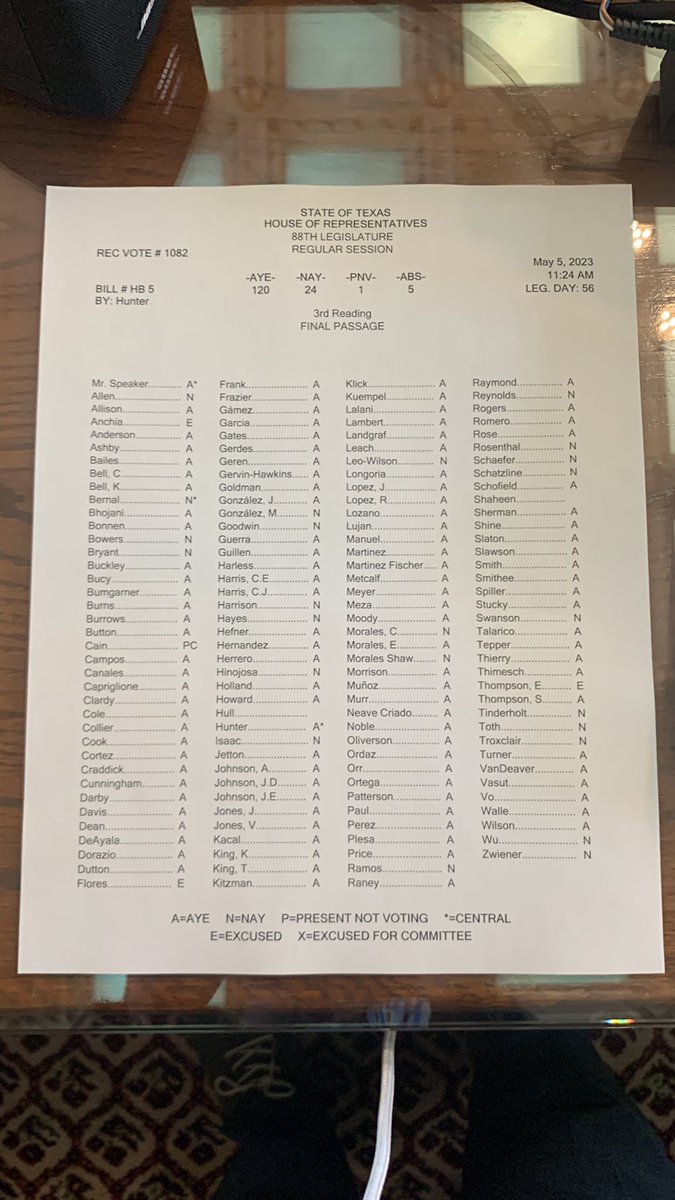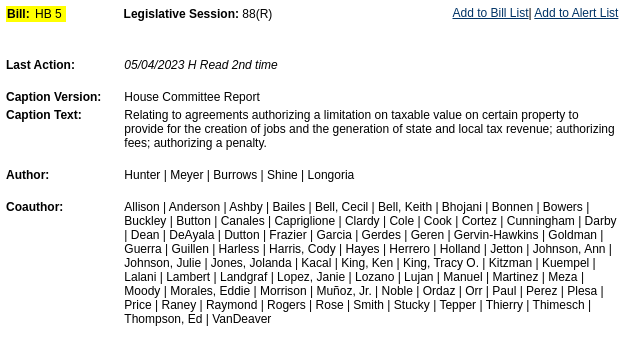Ahead of the @KenPaxtonTX impeachment vote, @TXAG is citing the "forgiveness doctrine"—a provision of state law that reads: "An officer in this state may not be removed from office for an act the officer may have committed before the officer's election to office." #txlege 

Section 665.081 of the Government Code was passed as #SB248 in 1993 by the 73rd #txlege.
More: lrl.texas.gov/legis/billsear…
More: lrl.texas.gov/legis/billsear…

The question presented by this section of code is: can an official be impeached for actions committed in a previous term?
Further: is a term in office considered the continuous length of time occupying it or is it separated by (re)elections?
Further: is a term in office considered the continuous length of time occupying it or is it separated by (re)elections?
To make their point, @TXAG points to a 1924 case in which a court ruled Titus County Sheriff John J. Reeves could not be removed from office because the misconduct allegations concerned actions from a previous term. 

The ruling cited sections of code that now reside in the Local Government Code, and rules, "each 'term of office' legally becomes an entity, separate and distinct from all other terms of the same office." 

Also pointed to is a 2014 case involving City of Tawakoni Councilwoman Carol Solomon. Citing the 1924 decision, the court ruled Solomon could not be removed for actions stemming from her previous term. 

This is the basis for the position that this impeachment of Paxton is "illegal."
But the House General Investigating Committee offered its own counterargument.
But the House General Investigating Committee offered its own counterargument.
In his memo on the impeachment resolution, Chair Murr first stated that the "forgiveness doctrine" only applies to local government officials -- not state officials. 

To make this case, Murr points to the 1975 impeachment of 229th Court District Judge O.P. Carillo for misconduct charges. There, the Texas Supreme Court stated, "it cannot be said that they were acts which were forgiven by the electorate."
Opinion: law.justia.com/cases/texas/su…
Opinion: law.justia.com/cases/texas/su…

Murr also cites the 1917 impeachment of Gov. James "Pa" Ferguson for offenses that preceded his 1916 election--this case also precedes all of the other instances cited above.
Murr memo: thetexan.news/wp-content/upl…
Murr memo: thetexan.news/wp-content/upl…
https://twitter.com/bradj_TX/status/1661872188297805827?s=20
Those are the arguments pertaining to the validity or lack thereof this impeachment proceeding. However, the argument surrounding the "forgiveness doctrine" touches not the merits of an impeachment.
Read the full articles here: capitol.texas.gov/tlodocs/88R/bi…
Read the full articles here: capitol.texas.gov/tlodocs/88R/bi…
And if you want a lengthier rundown of this whole situation, listen to this Twitter spaces @McKenzieDiLullo, @HaydenJSparks, and I did last night:
https://twitter.com/TheTexanNews/status/1662247162317529088?s=20
• • •
Missing some Tweet in this thread? You can try to
force a refresh

 Read on Twitter
Read on Twitter











